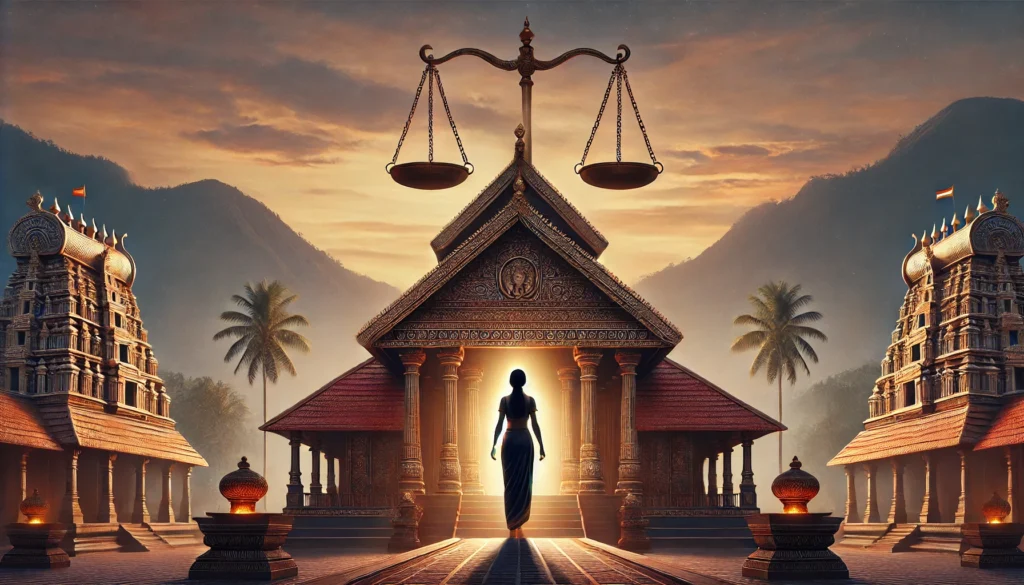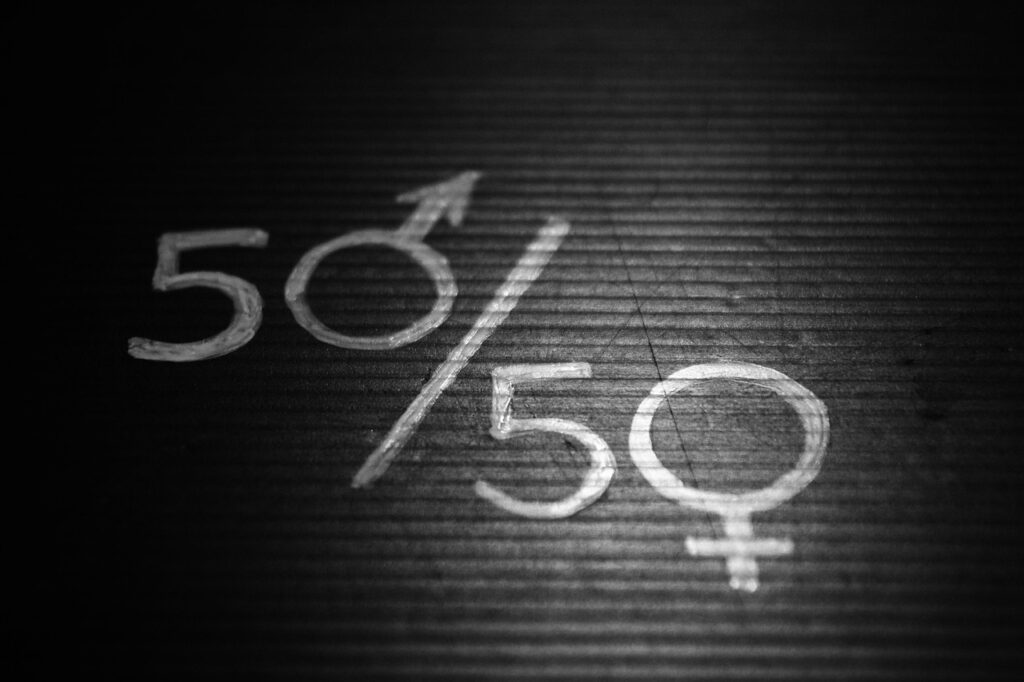Published On: September 28th 2025
Authored By: Janvi
ABSTRACT
Marital rape remains one of the most controversial and under-addressed issues in India’s criminal justice system. Despite increasing awareness and advocacy, Indian law continues to treat marriage as a space immune from the legal definitions of rape. This article examines the current legal framework, constitutional violations, and the urgent need for legislative reform to protect married women from sexual violence.
Keywords: Marital Rape, Indian Law, Criminal Justice System, Legal Definitions, Marriage, Consent, Section 375, Constitutional Rights, Equality
INTRODUCTION
Rape is a heinous act of sexual intercourse committed against any person forcefully without their consent. Various legal regimes have encompassed rape within the broader ambit of sexual assault, which also includes acts that do not constitute intercourse.
Section 375 of the Indian Penal Code defines rape as an act committed by a man against the will and without the consent of a woman.¹ However, this definition contains a significant exception that has profound implications for married women’s rights.
Marital rape, or spousal rape, refers to engaging in sexual intercourse with one’s spouse without consent. The absence of consent is an essential element and need not include physical violence. Marital rape is deemed a form of domestic violence and sexual abuse. Although sexual intercourse within marriage was traditionally regarded as a spousal right, engaging in the act without the spouse’s consent is now broadly classified as rape by many societies worldwide, condemned by international conventions, and progressively criminalized.
Despite being recognized as a criminal offense in many nations, marital rape remains exempt from prosecution in India under certain provisions of law, creating a legal paradox that undermines women’s fundamental rights.
THE LEGAL LANDSCAPE
Under Section 375 of the Indian Penal Code (IPC), which defines the offense of rape, Exception 2 explicitly excludes marital rape from its ambit:
“Sexual intercourse or sexual acts by a man with his own wife, the wife not being under fifteen years of age, is not rape.”²
Within the Indian legal framework, the understanding and treatment of marital rape vary and often rely on judicial interpretations. Consequently, the legal stance on marital rape hinges on the age of the wife, leading to a complex landscape of legal protection and accountability.
The Bharatiya Nyaya Sanhita (BNS) retains immunity for husbands in cases of marital rape but increases the age of consent from 15 to 18 years, complying with the Supreme Court judgment in Independent Thought v. Union of India (2017).³
Section 376 of the IPC outlines the punishment for rape, stipulating that a rapist should face imprisonment for a term of not less than seven years, which may extend to life imprisonment, or for a term that may extend to ten years, along with a fine.⁴
The Indian Penal Code’s provisions regarding marital rape create the following legal framework:
- Rape of a wife aged between 15-18 years: punishable by imprisonment up to two years or a fine, or both
- Rape of a wife below 15 years of age: punishable by imprisonment of not less than seven years, which may extend to life imprisonment, and fine
- Rape of a judicially separated wife: punishable by imprisonment up to two years and a fine
- Rape of a wife above 18 years of age: not punishable under the law
In 2005, the enactment of the Protection of Women from Domestic Violence Act recognized marital rape as a form of domestic violence.⁵ This Act enables women to seek legal remedies for marital rape, offering an avenue for seeking legal separation from an abusive spouse. However, the laws and mechanisms intended to protect victims of marital rape remain insufficient and fall short of addressing the gravity of the issue.
The crux of the matter lies in the fact that while a woman can demand her rights to life and freedom, she is not accorded the same autonomy over her own body within marriage. The very definition of rape under Section 375 of the IPC must be re-evaluated to address this imbalance. Presently, Section 498-A of the IPC, pertaining to cruelty by husband or his relatives, serves as a means for women to protect themselves against such instances.
CASE LAWS AND CONSTITUTIONAL ANALYSIS
Right to Live with Human Dignity
The concept of the right to life enshrined in Article 21 of the Indian Constitution has been a cornerstone in discussions of human rights and legal interpretations. The Supreme Court has consistently ruled in numerous cases that the crime of rape constitutes a violation of the victim’s right to life and the right to live with human dignity.
An illustrative instance of this perspective is found in The Chairman, Railway Board v. Chandrima Das, where the apex court asserted that rape is not merely a legal offense under the Indian Penal Code, but rather a crime that affects the entire society.⁶
Right to Sexual Privacy
Although the right to privacy is not explicitly mentioned in the Indian Constitution, the Supreme Court, through a series of cases such as Kharak Singh v. State of U.P., has recognized that the right to privacy is implicitly protected within the ambit of Article 21.⁷ Under Article 21, the right to privacy encompasses the right to be left alone and free from unnecessary intrusions.
Sexual privacy, an integral aspect of this right, is infringed upon by any form of non-consensual sexual activity. The concept of marital exemption to rape infringes upon a married woman’s right to sexual privacy by compelling her into a sexual relationship against her will.
The right to sexual privacy entails that an individual has the autonomy to make decisions about their own body and engage in intimate relationships consensually. Any non-consensual sexual act, including within marriage, violates this right and breaches the boundaries of personal autonomy and dignity.
WHY MARITAL RAPE SHOULD BE CRIMINALIZED IN INDIA
Breach of Article 14 of the Constitution of India
Article 14 of the Constitution of India states that “the State shall not deny to any person equality before the law or equal protection of the laws within the territory of India.”⁸ The Indian Penal Code operates prejudicially against women who are raped by their husbands, notwithstanding the Constitution’s guarantee of equal protection to every person.
A married woman was not considered a separate or independent legal entity during the documentation of the IPC in the 1860s. Instead, she was regarded as the chattel of her husband.⁹ As a result, she did not acquire many rights now guaranteed to her as an independent legal entity, including the right to file a complaint against the accused under her own identity.
Exception 2 to Section 375 of the IPC, which exempts sexual acts committed by husbands against their wives from being regarded as “rape,” is largely influenced by and derived from the then-existing doctrine of merging the woman’s identity with that of her husband. However, with the passage of time, laws prevailing in India now consider husbands and wives as independent and separate legal entities, and sufficient justice in present times is unequivocally concerned with the protection of women.
This evolution can be witnessed in the form of numerous statutes designed to protect women from violence and harassment, passed since the turn of the era, including the Protection of Women from Domestic Violence Act and the Sexual Harassment of Women at Workplace (Prevention, Prohibition and Redressal) Act.¹⁰
Breach of Article 21 of the Indian Constitution
Exception 2 to Section 375 of the IPC also violates Article 21 of the Constitution of India, which states that “no person shall be deprived of his life and personal liberty except according to procedure established by law.”¹¹ This clause has been interpreted by the Supreme Court of India, time and again in several of its judgments, to expand the meaning of this clause rather than confine it within the literal meanings of life and freedom. It asserted that the rights guaranteed under Article 21 include all aspects that are essential for living a dignified life, such as the right to privacy, health, dignity, safe environment, safe living conditions, and many more.
In present times, courts are recognizing a right to refuse sexual activities and to excuse oneself from unwanted sexual activity as incorporated within the broader aspect of the right to life and personal liberty.
In State of Karnataka v. Krishnappa, the Supreme Court stated that “sexual violence apart from being a dehumanizing act is an unlawful intrusion of the right to privacy and sanctity of a female.”¹² The court also held that sexual intercourse without consent amounts to physical and sexual abuse.
Subsequently, in Suchita Srivastava v. Chandigarh Administration, the Supreme Court equated the right to make choices related to sexual activity with the right to personal liberty, dignity, and bodily integrity within the meaning of Article 21 of the Indian Constitution.¹³
In the landmark case of Justice K.S. Puttaswamy (Retd.) v. Union of India (2017), the Supreme Court of India recognized the right to privacy as a fundamental right of all citizens under Article 21 and ruled that the right to privacy encompasses “decisional privacy reflected by an ability to make intimate decisions primarily consisting of one’s sexual or procreative nature and decisions in respect of intimate relations.”¹⁴
Living in any form of coercive sexual relationship is regarded as an infringement of the fundamental right guaranteed under Article 21.¹⁵
Moreover, Exception 2 infringes upon the right to live a life with dignity as guaranteed by Article 21 of the Indian Constitution. As established above, it is well-settled that the right to life incorporated in Article 21 is not merely a right to exist.¹⁶ In this regard, the courts have repeatedly held that the “right to life” encompasses the right to live a dignified life.¹⁷
The continued existence of Exception 2 fails to deter men from engaging in acts of coerced sexual intimacy with their wives, negatively affecting the physical and psychological health of wives and undermining their right and ability to live a dignified life.
However, the Law Commission of India has recognized three arguments against the criminalization of marital rape:
- Marriage is sacred, and criminalization of such acts would lead to the destabilization of society
- There is a fear of a large number of fraudulent cases being filed against husbands
- The difficulty of medical proof creates another lacuna that has helped offenders continue to abuse their wives and escape criminal liability¹⁸
INTERNATIONAL PERSPECTIVES
Globally, over 100 countries have criminalized marital rape, recognizing it as a violation of human rights. Nations such as South Africa, Nepal, Canada, Australia, Germany, and all 50 states in the United States have enacted laws against marital rape. India’s continued exemption places it among a diminishing group of countries that fail to protect married women from sexual violence.
International bodies, including the United Nations Committee on the Elimination of Discrimination against Women (CEDAW), have repeatedly urged India to criminalize marital rape, emphasizing that its non-recognition contravenes international human rights obligations.¹⁹
CONCLUSION
The legal recognition of marital rape in India is not merely a matter of legislative reform but a fundamental question of human dignity and constitutional rights. The current legal framework, which treats married women as having lesser rights to bodily autonomy than unmarried women, is constitutionally unsustainable and morally indefensible.
As India strives to uphold the principles of justice and human rights, the legal framework must evolve to ensure that women are protected from all forms of violence, including violence perpetrated within the institution of marriage. It is imperative to recognize that individual rights and societal values can coexist harmoniously when approached with sensitivity and a commitment to gender equality.
The time has come for India to join the international community in recognizing that consent is not surrendered at the altar of marriage and that all women, regardless of marital status, deserve protection from sexual violence under the law.
REFERENCES
- Indian Penal Code 1860, s 375
- Indian Penal Code 1860, s 375, Exception 2
- Independent Thought v Union of India (2017) 10 SCC 560
- Indian Penal Code 1860, s 376
- Protection of Women from Domestic Violence Act 2005
- Chairman, Railway Board v Chandrima Das (2000) 2 SCC 465
- Kharak Singh v State of UP AIR 1963 SC 1295
- Constitution of India 1950, art 14
- R v Jackson [1891] 1 QB 671
- Sexual Harassment of Women at Workplace (Prevention, Prohibition and Redressal) Act 2013
- Constitution of India 1950, art 21
- State of Karnataka v Krishnappa (2000) 4 SCC 75
- Suchita Srivastava v Chandigarh Administration (2009) 9 SCC 1
- Justice KS Puttaswamy (Retd) v Union of India (2017) 10 SCC 1
- ibid
- Maneka Gandhi v Union of India (1978) 1 SCC 248
- Francis Coralie Mullin v Administrator, Union Territory of Delhi (1981) 1 SCC 608
- Law Commission of India, ‘172nd Report on Review of Rape Laws’ (2000)
- CEDAW Committee, ‘Concluding Observations on India’ (2014) CEDAW/C/IND/CO/4-5




